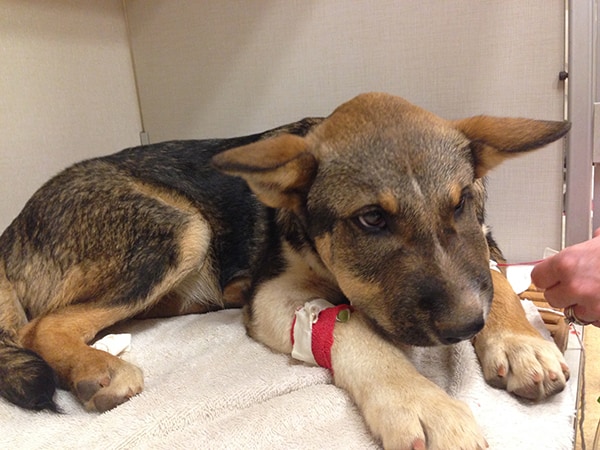 It’s snake bite season!
It’s snake bite season!
First, about the snakes. There are 5 species of rattlesnakes in our area. They have good vision to about 15 feet. They tend to bask in the sun near a hiding spot such as a burrow, wood or haystack, or rock crevice for quick escape. They hibernate in winter, and emerge when the weather warms up.
Springtime is the most active and stressful time for the snake. It is hungry after hibernation, needs to shed its skin, and reproduce. This is the most likely time our pets may come in contact with them, but it can happen very late into Autumn as well.
During hotter weather, rattlesnakes may be inactive during the day, and hunt morning and evening. They can also hunt at night using their ability to detect vibration and body heat from prey species.
Contrary to popular opinion, bites of baby rattlesnakes are not consistently worse than those by adult rattlers. The severity of bite depends more on the amount of venom, the characteristics of the venom, the location of the bite, and the size of the animal. There are variations in snake venom not only between species, but between individuals of the same species.
Most venoms are hemoetoxic—they disrupt blood cells, clotting, vessels, and circulation. Others may have neurotoxins—you may see weakness, trouble breathing, and other neurologic problems. Most cause swelling, but in a few cases this is minor.
According to Dr. Karen Seibold, critical care specialist at Animal Urgent Care in Escondido, small dogs and cats tend to suffer more severe symptoms. Their natural quickness aggravates the snake, which then tends to inject more venom.
There has been long debate about the value of the rattlesnake “vaccine”.
Dr. Seibold has watched the literature carefully, and no scientific studies documenting benefit have emerged. Her impression is that the vaccine may reduce swelling, but the damage from the venom is not changed, and may not be recognized as quickly as it should.
In the event your pet has been bitten, or you think it has, immediate assessment is essential, whether they have been vaccinated or not. Antivenom (Antivenin) is very effective at neutralizing many of the toxins, therefore reducing pain, swelling, and many of the other effects of a bite. Antivenom will always be recommended.
Please call us at High Valley if you have questions!
